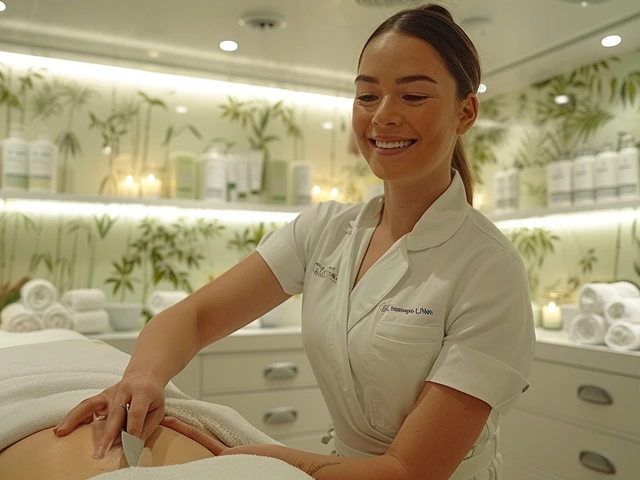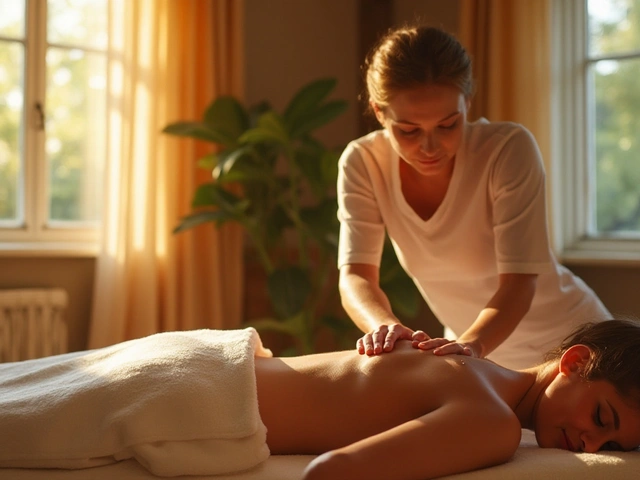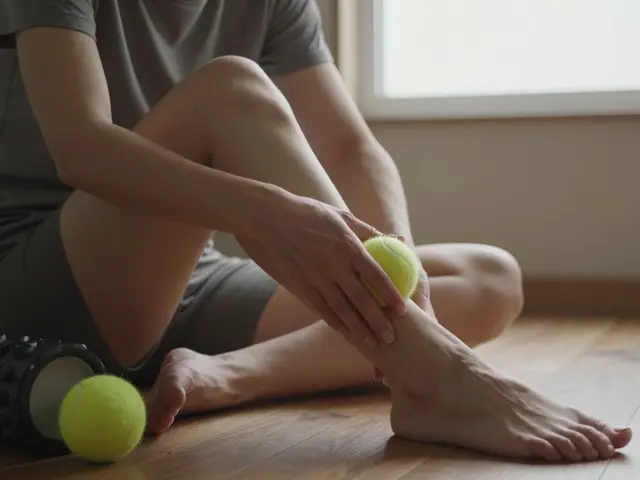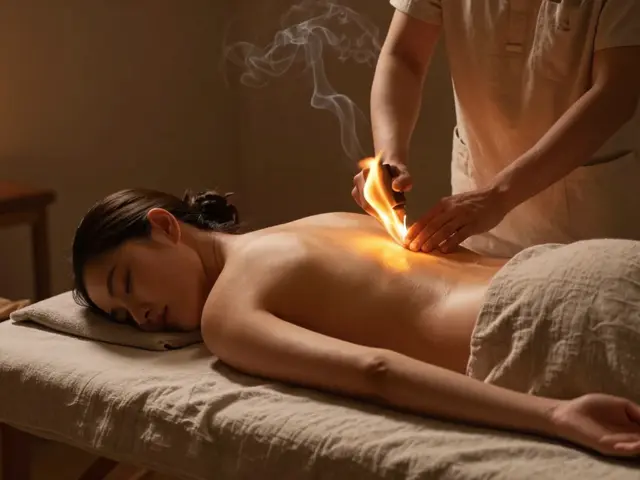Pregnancy is a beautiful journey, albeit one that comes with its own unique set of challenges. From backaches to swollen ankles, the physical demands are plentiful. This is where prenatal massage steps in as a nurturing way to ease these discomforts.
Prenatal massage is tailored specifically for the needs of pregnant women. It's more than just a luxury; it's a helpful remedy that can offer immense relief. Whether it's alleviating lower back pain or reducing stress, the benefits are many.
Expecting mothers must take certain precautions to ensure safety and maximize benefits. Consulting with a trained professional who specializes in prenatal care is crucial. They have the expertise to avoid pressure points that could trigger contractions.
Lastly, finding the right therapist can make all the difference. Look for a certified professional who understands your unique needs. A good therapist will not only have the right skills but will also create a calming environment for you to truly relax and enjoy the experience.
- What is Prenatal Massage?
- Benefits for Expecting Mothers
- Safety Tips and Considerations
- Finding the Right Therapist
What is Prenatal Massage?
When carrying a child, the body goes through a series of amazing yet demanding changes. This is where prenatal massage comes into play, offering a targeted form of therapy aimed at easing the journey of pregnancy. Unlike regular massage, prenatal massage is specifically designed to cater to the unique needs of expecting mothers. The techniques used are gentle and modified to provide comfort while addressing common pregnancy-related issues.
The primary goal of prenatal massage is to support the physiological, structural, and emotional well-being of both the mother and the baby. It involves the careful manipulation of muscles and tissues to relieve tension, improve blood circulation, and reduce swelling. These massages often focus on areas such as the lower back, hips, and legs, which are commonly affected during pregnancy. Licensed professionals use special pillows and side-lying positions to ensure comfort and safety throughout the session.
One fascinating aspect of prenatal massage is its history, which dates back centuries to ancient cultures. Practices from Asia, India, and Europe have all acknowledged the benefits of massage during pregnancy. Today, modern science backs these traditional practices. According to a study published in the Journal of Psychosomatic Obstetrics & Gynecology, prenatal massage significantly reduces levels of cortisol, the stress hormone, while increasing serotonin and dopamine levels, which are responsible for mood elevation and relaxation.
Another interesting fact is the versatility of prenatal massage techniques. Techniques like Swedish massage or reflexology are commonly modified for pregnant women to enhance their benefits without causing discomfort. Swedish massage, for example, uses long, smooth strokes and gentle kneading to relax muscles, improve circulation, and promote a sense of well-being. Reflexology, on the other hand, involves applying pressure to specific points on the hands and feet, which is believed to correspond to different parts of the body and can be particularly useful in alleviating common pregnancy symptoms, such as nausea and fatigue.
The Emotional and Psychological Benefits
Aside from the physical benefits, prenatal massage offers significant emotional and psychological advantages. Pregnancy can be a time of emotional turbulence, and the nurturing touch of a skilled therapist can help alleviate stress, anxiety, and depression. The quiet, relaxing environment of a massage session also provides a mental break for mothers-to-be, allowing them to connect more deeply with their growing baby. In fact, research has shown that women who receive regular prenatal massages experience fewer instances of postnatal depression and report feeling more positive about their pregnancy.
According to Dr. Tiffany Field, Director of the Touch Research Institute at the University of Miami School of Medicine, "Prenatal massage not only reduces anxiety and depression but can also lead to improved birth outcomes, such as fewer preterm births and lower rates of newborn complications."
In summary, prenatal massage is more than just a pampering session. It is a thoughtfully designed, therapeutic practice aimed at giving expecting mothers the comfort and support they need during one of the most important times of their lives. From easing physical discomfort to enhancing emotional well-being, prenatal massage is indeed the ultimate relaxation technique for mothers-to-be.

Benefits for Expecting Mothers
Pregnancy is a transformative experience for the body, both inside and out. One of the primary benefits of prenatal massage is the sheer relaxation it can provide. During pregnancy, hormonal shifts can often bring about stress and anxiety. A well-done massage helps in calming the nervous system, increasing dopamine and serotonin levels, which are the body's natural mood stabilizers.
Physical discomforts like back pain, swollen feet, and sore hips are common during pregnancy. It’s reported that more than half of all pregnant women experience significant lower back pain at some point. Prenatal massage can effectively target these issues by improving circulation. This not only reduces swelling but can also improve oxygen and nutrient delivery to mom and baby.
Improved sleep quality is another outstanding benefit. Many expecting mothers struggle with finding comfortable sleeping positions, leading to insomnia or restless nights. Regular massage helps in reducing muscle tension and promotes deeper, more restorative sleep.
Massage during pregnancy can help prepare the muscles used in childbirth. This is critical as preparing these muscles beforehand can ease the labor process by making the body more flexible and ready for the demands of childbirth.
It's also worth noting the emotional benefits. Maternity can be a roller-coaster of emotions, and having a dedicated massage session can provide a sense of calm and emotional balance. This mental peace is invaluable for a healthier pregnancy.
Several studies have backed these benefits. According to a study by the University of Miami School of Medicine, pregnant women who received bi-weekly massages for just five weeks reported lower anxiety levels, improved mood, and reduced leg and back pain.
However, make sure the massage therapist is well-trained in prenatal care. Missteps in technique can lead to unwanted pressure on certain areas, which could be harmful. Always communicate your needs and concerns openly with your therapist to ensure a safe and effective session.
In some cases, massage even helps in reducing labor pain and shortening labor time. Earlier intervention through massage has been linked with fewer complications and a relatively smoother delivery process. These factors make prenatal massage not merely a form of pampering but an essential healthcare practice for pregnant women.
The American Pregnancy Association states, "Studies have shown that women who receive regular prenatal massages have lower levels of stress hormones, improved immune system response, and reduced medical interventions during labor."

Safety Tips and Considerations
When considering a prenatal massage, safety should be your top priority. Pregnancy is a delicate time, making it essential to approach massage with care. Here are some practical tips and considerations to help you make the most out of your massage experiences during this special period.
The first essential tip is to always consult with your healthcare provider before undergoing prenatal massage. Your doctor or midwife knows your medical history best and can provide personalized advice on whether massage is right for you. In certain high-risk pregnancies, massage might not be advisable.
It's crucial to choose a therapist who is specifically trained in prenatal massage. Not all massages are created equal, and an inexperienced therapist can inadvertently cause harm. Certified prenatal therapists understand the unique physical changes during pregnancy and know how to avoid areas like the abdomen, pressure points in the wrists, and legs that might trigger contractions. According to the American Pregnancy Association, trained therapists can significantly reduce sciatic nerve pain, a common issue faced by expecting mothers.
Another important consideration is timing. It is generally recommended to avoid massage during the first trimester when the risk of miscarriage is higher. The second and third trimesters are considered safer, and many women find relief from aches and stress during this time.
Positioning during the massage is crucial. Lying flat on your back can cause pressure on major blood vessels and restrict blood flow. Instead, therapists often use special cushions or a side-lying position to ensure comfort and safety. The Journal of Obstetric, Gynecologic, & Neonatal Nursing suggests that side-lying positioning not only enhances comfort but also improves circulation.
Additionally, pay attention to the type of massage oil used. Some essential oils can be harmful during pregnancy. Always inform your therapist if you have any allergies or sensitivities. Opt for hypoallergenic or unscented oils to avoid any adverse reactions.
If you experience any discomfort, dizziness, or pain during the massage, it's crucial to speak up immediately. Your therapist can adjust the pressure or technique to make you more comfortable. Remember, the goal is to relax and relieve stress, not to endure pain.
Lastly, hydration is key. Drinking plenty of water before and after your massage can help flush out toxins released during the session. Staying hydrated supports overall well-being and can further alleviate muscle tension and cramps.
In essence, prenatal massage can be a wonderful addition to your wellness routine during pregnancy, provided these safety tips and considerations are followed. As Dr. Susan Johnson, an expert in maternal health, states,
"A well-executed prenatal massage can provide significant relief and contribute to a healthier, happier pregnancy."By taking these precautions, you can enjoy the full range of benefits that a prenatal massage has to offer.

Finding the Right Therapist
Choosing the right therapist for a prenatal massage is an essential step in ensuring both the safety and enjoyment of the experience. You want someone who is not just a skilled massage therapist but also understands the specific needs and concerns of pregnancy. This includes knowing which areas to avoid and how to position the body for maximum comfort and safety. Before making an appointment, it’s wise to check the therapist’s credentials. Look for certifications in prenatal massage, as well as any other training relevant to maternal health.
Referrals from friends or healthcare providers can be incredibly valuable. If someone you trust had a positive experience, it’s often a good indicator that you will too. You can also read online reviews to gauge what other clients have said about their experiences. A therapist with consistently high ratings is usually a safe bet. It's also important to have a preliminary consultation or chat with the therapist. This will give you a feel for their expertise and whether their approach aligns with your comfort levels and safety needs.
Another critical factor is experience. How long has the therapist been practicing, particularly in the field of prenatal massage? The more experience they have, the better equipped they will be to handle any unique situations or issues that may arise. They should have a comprehensive understanding of how the body changes during pregnancy and be familiar with conditions like sciatica, pubic symphysis dysfunction, and edema. It’s this kind of specialized knowledge that sets apart an average therapist from a great one.
Pay attention to the environment of the massage facility as well. Is it clean, quiet, and comfortable? These elements contribute significantly to your overall relaxation. Some therapists provide in-home services, allowing you to enjoy the massage in the comfort of your own space. Whether at home or in a studio, the setting should be serene and conducive to relaxation.
Mary Johnson, a certified prenatal massage therapist, said, “The comfort and trust between the expecting mother and the therapist are paramount. Without this trust, the therapy's benefits might not be fully realized.”Don’t hesitate to ask questions before and during your session. Inquire about the techniques they plan to use and express any concerns you might have. A good therapist will listen to your needs closely and adapt their methods to suit you. This not only ensures your safety but also makes the experience more enjoyable and effective. Lastly, discuss any medical conditions with the therapist. Whether it’s high blood pressure, gestational diabetes, or any other condition, being upfront helps them tailor the session to your specific needs.
All these elements combine to help you find the perfect therapist who can provide a truly nurturing and beneficial prenatal massage experience. By doing your homework and taking the time to choose wisely, you can look forward to a safe and profoundly relaxing journey through your pregnancy.










